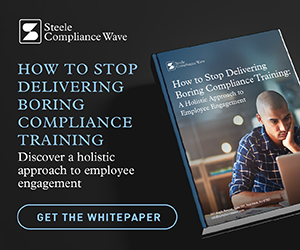10/20/16: Compliance programs are required by law, but just how effective do companies think their compliance programs are? That’s a question asked and answered in a survey of compliance and ethics officers conducted jointly by the health Care Compliance Association and the Society of Corporate Compliance and Ethics. The survey is enlightening for companies across the business spectrum. One important finding of the survey: 83% of those surveyed reported that their programs had prevented one incident of misconduct over the previous two years but a full 46% of those surveyed reported a that six or more incidents had been prevented. The survey gives a good picture of what worked, where the potential problems are, and how misconduct was prevented or detected.
Compliance Communications Blog
10/3/16: Nobody is sure of how the UK’s exit from the European Union will play out or how the new status will affect global anti-corruption efforts. On September 5, the UK’s Attorney General Jeremy Wright opened small windows into the government’s current thinking and potential actions regarding economic (or, to use another term: white collar) crime. His remarks were broken into several sections. They’re all interesting but the second half of his published remarks may be of the greatest interest to compliance professionals subject to any UK law including the UK Bribery Act. Slip down to the sections titled “Corporate Criminal Liability” and “Failure to Prevent.”
10/3/16: Law firm Baker & McKenzie’s Global Compliance News provides a quick overview and link to the firm’s 2016 Global Overview of Anti-Bribery Laws Handbook. It’s one of the most useful guides to the status of anti-bribery laws and their enforcement in 47 countries. Each country has its own chapter, making the handbook easy to use, and each chapter includes such topics as facilitation payments, domestic bribery, risks associated with bribery and corruption.
10/3/16: In remarks prepared for the American Bar Association Southeastern White Collar Crime Institute, Principal Deputy Assistant Attorney General David Bitkower spoke about DOJ’s “… new, broad-based and proactive approaches to emerging issues in the area of white collar crime.” He focused specifically on those approaches in the areas of health care fraud, financial fraud, FCPA, and international. The remarks are worth reading, providing insight into DOJ’s thinking and approach to enforcing the multitude of laws under its jurisdiction. Among the topics that matter to compliance professionals: DOJ’s “metrics-oriented” approach to evaluating compliance for companies seeking to resolve criminal investigations, the FCPA, and global collaboration on investigations and prosecutions.
10/3/16: A post on the FCPA Blog by Gönenç Gürkaynak, Ç. Olgu Kama and Burcu Ergün from the ELIG law firm asks an interesting question. Why do people view violations of anti-corruption laws and anti-competition laws differently? The authors provide thoughtful ideas about why the two types of illegal behavior may be perceived differently. Those ideas touch on differences of consequence, criminality and drama. The short post on FCPA Blog gives a taste of the full article (requires purchase) through a link at the bottom of the post.


